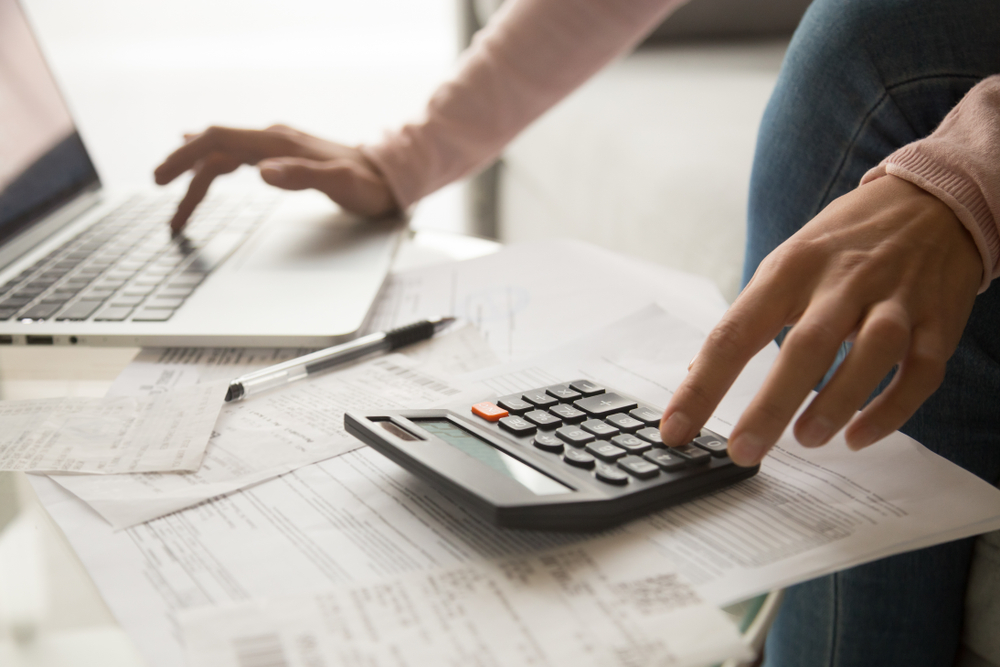While budgeting can be daunting, it’s actually an invaluable tool for understanding where your money is going and improving your financial habits. Read on for a step-by-step guide to building a budget, plus helpful tips for managing your personal finances wisely.
Making a budget
Why do I need a budget?
Do you have a clear picture of what’s going on with your money? Do you save regularly? Are you debt-free? If you answered “no” to any of these questions, chances are that budgeting will not only help you balance your income and expenses, but also help you regain control of your finances. What’s more, a budget can help you pay off debt, save for goals you care about, and set money aside for a rainy day.
How to make a budget
Set your goals
Start by setting financial goals and classifying them into three categories:
- Short-term goals (timeline of less than 1 year): create a financial cushion, plan your next vacation, pay off your debts.
- Medium-term goals (timeline of 1 to 5 years): buy a property, renovate your home, buy a car.
- Long-term goals (timeline of more than 5 years): pay off your mortgage, pay for your children’s education, retire.
Once your goals are clearly defined, estimate how much money you’ll need to achieve them. By attaching a specific dollar amount to your goals, you’re more likely to achieve them.
List your income sources
In addition to your salary, you likely receive income from other sources. For instance, you may receive tips, bonuses or commissions, social assistance or employment insurance benefits, investment income, a pension, support payments, CNESST benefits, family allowances, the Quebec solidarity tax credit, or GST/QST credits.
These amounts are typically listed in the “Deposits” column of your bank statement. List your net income (i.e., income after taxes), as well as all additional amounts as you received them. Your pay stub and latest income tax statement can be valuable sources of information.

Identify and track your expenses
There are two main categories of expenses: fixed and variable. Fixed expenses include things like rent or mortgage payments, utilities, telecom bills, gym memberships or activity fees, public transit passes, pet expenses, insurance premiums (e.g., life, critical illness, disability), and debt payments.
Variable expenses include groceries, entertainment and dining out, clothing and personal care products, medical expenses, gifts, and vacations.
Don’t forget about infrequent or annual expenses, such as vehicle registration fees, driver’s licence renewal fees, car maintenance and repairs, and professional membership fees. Taking a look at last year’s bills can give you a good idea of how much you should be budgeting for the current year.
It’s always a good idea to hold onto your receipts to keep track of cash purchases, which can have a considerable impact on your budget. Finally, keep in mind that the more accurate you are with your tracking, the better your budget will reflect your financial situation. Your bank and credit card statements can be very helpful in this regard.
Find the right tool
Budgeting apps and tools can make your job a lot easier. Simply enter your monthly income and living expenses in the fields provided, and the tool will do the rest.
For example, the Government of Canada’s Budget Planner and Financial Goal Calculator tools can help you create a personal budget and set savings goals and save them online. They even provide tips and suggestions to help you stay on track!
Other applications can help you keep an eye on your cash flow; some even sync automatically with your bank account as you make transactions.
Analyze your financial situation
Once you’ve listed your income and expenses, you’ll be able assess the overall health of your finances and determine whether you need to make some changes.
This step will also make it easier to balance your budget by planning ahead for major costs or reassessing your ability to pay off your debts.
Reduce your expenses
Now that you have a clear picture of your finances, you should be able to identify unnecessary living expenses and potential savings. For example, a daily $3 snack during your coffee break will end up costing you more than $700 by the end of the year.
Here are a few more ideas to consider:
- Before giving in to an impulse purchase, take a few days to decide whether you really need it.
- Review and negotiate your telecom bills and cancel the services you no longer use.
- Take advantage of free or low-cost activities offered in your neighbourhood or municipality.
- Plan your meals for the week and make a grocery list to avoid impulse buys.
- Trade your car for a bike or try carpooling.
This is also a good time to distinguish between your wants and your needs and assess how much of your budget you can allocate to each of these categories.

Setting up a savings plan
Set a monthly savings goal
In addition to debt payments, a portion of your budget should be dedicated to savings, whether for retirement or another goal you care about. When it comes to how much to set aside, there’s really no magic number. It will depend largely on your goals, as well as your financial and personal situation. You’ll have a better idea of how much you can save once your budget is made.
If you don’t have an emergency fund set aside, building one up should be your priority. Ideally, your emergency fund should be able to cover three to six months of expenses in case you lose your job, come down with an illness that prevents you from working, or experience some other major financial hardship.
If saving that much money seems impossible, keep in mind that you can always start small.
Automate your saving
Get into the habit of paying yourself first by scheduling automatic transfers to a savings account on your paydays. That way, you can grow your savings without even thinking about it.
How to choose the right savings account
There are a number of tax-advantaged savings vehicles you can use to invest in your future, such as a TFSA, FHSA, RRSP, or RESP.
Your choice of product will largely depend on your goals. If you want easy access to your savings, a high-interest savings account or TFSA could be a good choice.
Remember to update your budget whenever your circumstances change. For example, having a child, buying a home, losing your job, or even just experiencing a change in your expenses can impact your financial situation.
Long-term investment strategy
Why invest?
The sooner you invest, the sooner your money will “go to work” for you. Not only will you benefit from compound returns (i.e., your interest will start generating interest), but your investments will also be better able to cope with market volatility.
Investment strategies
Real estate is an excellent investment if you’re looking to diversify your portfolio while benefiting from the potential for stable long-term returns and additional income. However, real estate investment does come with certain risks, such as rising interest rates or unexpected repairs.
Investing in financial products can also be a good way to grow your money, as long as you carefully consider your investor profile, risk tolerance, and investment horizon. This investment strategy also comes with its share of risks, including market uncertainty. Diversifying your portfolio is a great way to mitigate these risks.Have questions or need advice? A financial advisor can help you with decisions relating to savings, estate planning, and financial planning. Your Multi-Prêts broker can also help you make your future plans a reality.
FAQ
What’s the difference between saving and investing?
How can I save money fast?
How much should I save each month?
Key takeaways
- Making a budget is a great way to manage your finances
- There are many different tools that can help you build and track your budget
- It’s important to be thorough and accurate when listing your income and expenses
- Making a budget can help you save money and get out of debt
- Updating your budget regularly will help keep you on track

